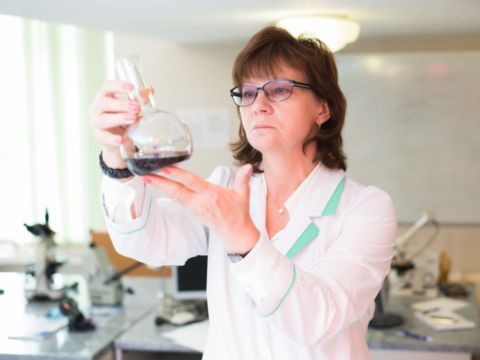In the last two summers the usual climate of the Chelyabinsk Region has changed dramatically: temperature fluctuations and heavy rains have caused losses to owners of grain fields. Researchers from SUSU, in cooperation with the Ministry of Agriculture of the Chelyabinsk Region, are looking for methods to reduce the risks of food grain losses. The work is being carried out within the framework of the Science and Universities national project.
The world scientific community studying the planet's climatic conditions has begun to sound the alarm − global warming is spreading to ever larger territories, moving towards northern regions. This means that the normal conditions for the vegetation of these territories are being disrupted: the characteristic epiphytic microflora (which exists in nature, in the soil, on plants) changes qualitatively and quantitatively due to the high level of humidity. As a result, there are risks of food losses, and if secondary metabolites of microflora are preserved in processed products − there is a danger to human health.
The extreme climate conditions during the 2023 harvesting campaign, accompanied by heavy rainfalls, have not yet been forgotten. Then farmers faced a change in plant physiology: wheat began to germinate in the ear. The fact is that when the grain germinates on the root, due to over-moistening of the soil, favourable nutritional conditions are created in the grain for the activation of toxic mould fungi; there is an increase in the amount of mycotoxins that can accumulate in the consumer's body and negatively affect his condition.
And if it is practically impossible to influence the climate, then it is necessary to find ways to bring raw materials to the proper quality − first of all, to ensure their safety. The Ministry of Agriculture of the Chelyabinsk Region turned to SUSU researchers, who have experience in this area, for help in this matter.
It should be noted that scientists from the Department of Food Technology and Biotechnology at the university, with the support of the Ministry, received a grant from the Russian Science Foundation for a "Methodology for Reducing the Risks of Food Losses of Grain Based on the Use of Non-thermal Effects to Ensure the Stability of Regional Food Systems in Extreme Conditions of Climate Change," which, over the course of three years of research, will make it possible to find new ways to "save" future bread.
"Our team has planned research at the level of molecular modelling of emerging risks, the results of which we will be ready to share next year," explains Irina Potoroko, Director of the SUSU School of Medical Biology. "All funds allocated under the terms of the supported grant have been distributed for the coming year according to the task plan. Since nature is unstable, we must also assess the dynamics of climate change, which affects transformations in plants; this research is currently being carried out by researchers from our department. To expand research capabilities, equipment that can be used to identify mould fungi in cereal crops will be purchased, while other equipment will allow us to track changes inside each grain at the cellular level."
Over the course of a year, the scientists monitored the dynamics of toxic risks in raw materials at an optimal moisture level. Any changes in the internal contents of the grain mass, including its microflora, were taken into account; the first results of the observations will be published in December. The researchers' current plans include studying samples of grain batches from the 2024 harvest and conducting a comparative analysis to determine the dynamics of the presence of toxicants in the samples, as well as to test new methods of grain sterilizing.
Currently, the university's developers are testing a method for disinfecting sprouted grain from mycotoxins using non-thermal effects (hybrid treatment: cold plasma and ultrasound) in a field of low-ionized gas and cavitation, which help inactivate toxigens in grain and activate the physiology of grain germination within a fixed period of time.
"During the first year of work, through long trials, we established a rational mode of treating damaged grain with cold plasma," says Irina Potoroko. "However, we realized that it was necessary to reduce the duration of such treatment, establish acceptable parameters for gentle disinfection of grain without damaging its structure and preserving its natural benefits. The complexity of the work is due to the ever-increasing number of new forms of mycotoxins and their complexes, and to stop each of them, it is necessary to select an individual mode with a certain intensity of treatment."
Currently, the Chelyabinsk scientists are searching for simpler and faster ways for industrialists to safely and effectively process grain raw materials. Over the three years of the grant implementation, they intend to combine fundamental scientific knowledge with their future "product", which will become a practical proposal for our region's agro-industrial complex.




